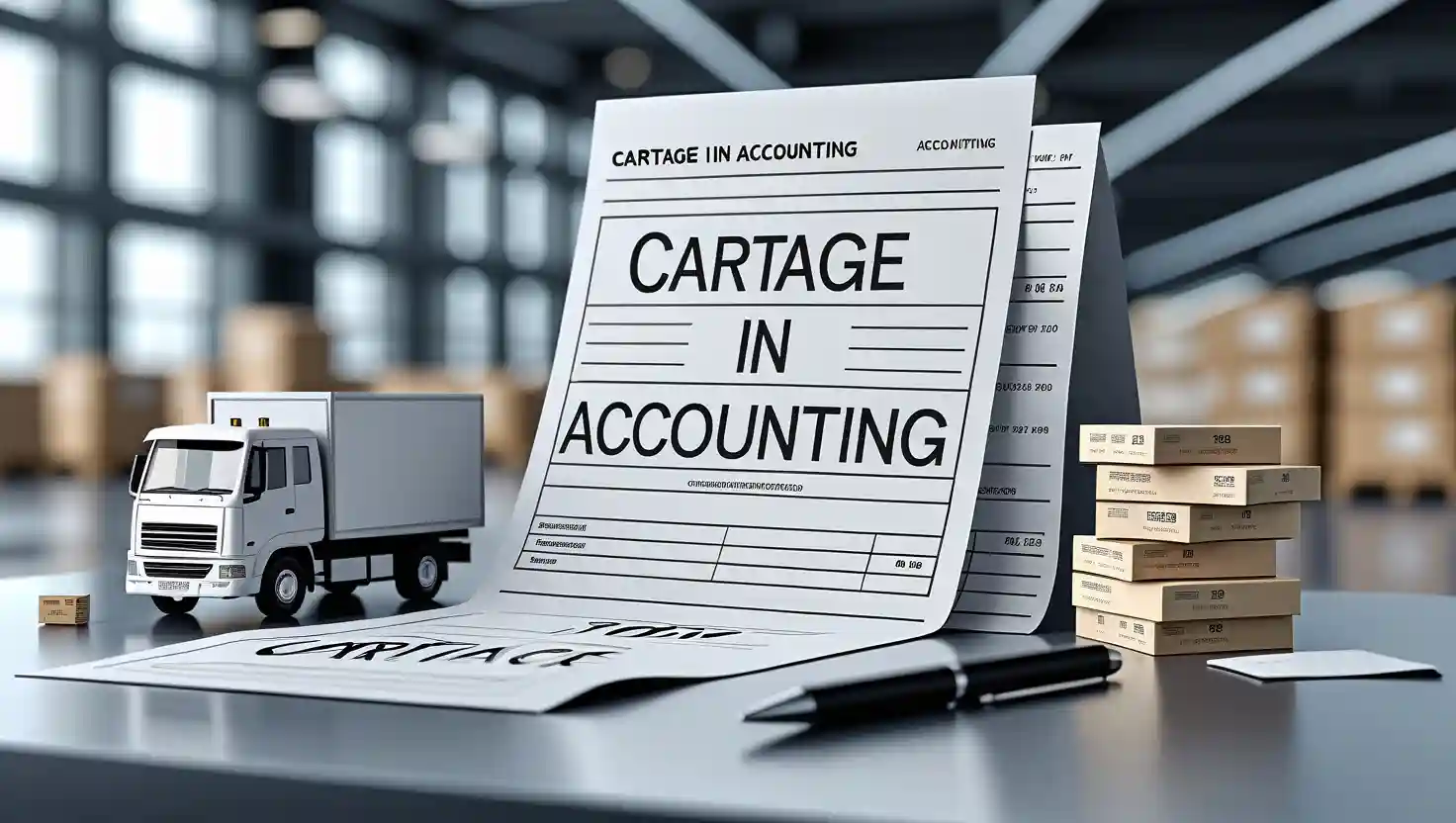
What is Cartage? #
Cartage is the cost of moving goods over short distances. It usually means transporting items within the same city or to nearby places. Businesses use cartage to receive raw materials and deliver products to customers. Keeping track of these costs helps businesses stay efficient and profitable.
Why is Cartage Important for Small Businesses? #
Cartage costs can affect a business’s overall expenses. If you’re a shop owner, manufacturer, or service provider, keeping cartage costs under control is important. If these costs go too high, they can reduce your business profits. That’s why tracking and managing cartage expenses is necessary for success.
Understanding Cartage Costs #
What Does Cartage Cost Include?
Cartage expenses cover multiple costs, such as:
- Transportation Fees: The amount paid for moving goods.
- Fuel Costs: The cost of petrol or diesel used in transport.
- Driver Wages: The salary paid to the drivers.
- Vehicle Maintenance: Repairs and upkeep of transport vehicles.
- Rental Fees: Payments made if the business hires a transport service.
Tracking these expenses helps businesses budget wisely and avoid unexpected losses.
Ways to Transport Goods
Cartage can be done using different types of vehicles. A business should choose the right transport mode based on delivery needs.
- Trucks: Best for large-sized goods or bulk shipments.
- Vans: Useful for medium-sized deliveries and commercial transport.
- Two-Wheelers: Perfect for lightweight packages with fast delivery needs.
Using proper transportation makes deliveries efficient and reduces costs.
Keeping Proper Records
It is important to keep clear records of all cartage expenses. Businesses should store:
- Invoices and Bills: Proof of each expense.
- Receipts: A record of payments made.
- Dispatch Logs: Details of deliveries sent and received.
Keeping documents organized helps businesses follow tax rules and track spending accurately.
Following Laws and Taxes
Cartage expenses should follow local transport rules and tax laws. Many areas include cartage under Goods and Services Tax (GST) rules. Businesses must ensure they follow all tax guidelines while documenting transport expenses.
Benefits of Managing Cartage Expenses Wisely #
- Saves Money and Improves Profits: Tracking cartage expenses helps businesses avoid unnecessary costs. When businesses monitor how much they spend, they can make better financial decisions.
- Faster and Smoother Deliveries: Having a system for cartage improves delivery timing. It also reduces delays, increasing customer satisfaction and trust.
- Better Financial Records: Managing cartage costs properly improves financial reports. It gives a clear picture of business spending and helps in future planning.
- Possible Tax Savings: Some cartage expenses may qualify for tax deductions. Knowing tax benefits can help a business save money.
- Competitive Business Edge: A well-managed transport system allows businesses to offer faster, more reliable service. This can help them stand out from competitors.
Smart Cartage Strategies for Business Owners #
- Review Expenses Regularly – Check cartage expenses every month to control unnecessary spending.
- Use Technology for Efficiency – Apps like Vyapar help track and automate expenses, reducing paperwork.
- Negotiate Better Transport Rates – Build strong partnerships with transport providers to get better pricing.
- Choose Eco-Friendly Delivery Modes – Electric vehicles and bicycles can cut costs and reduce pollution.
- Train Delivery Staff Well – A skilled transport team ensures smooth operations and avoids costly mistakes.
Common Cartage Problems Businesses Face #
- Sudden Cost Increases: Fuel prices change frequently. Businesses should monitor market rates and adjust transport budgets accordingly.
- Keeping Up with Laws and Regulations: Tax and transport laws change with time. Businesses should stay updated with GST and other legal requirements.
- Delivery Delays and Logistics Issues: Traffic, weather, or vehicle breakdowns can cause delays. Regular maintenance and using GPS tracking can minimize these issues.
- Difficult Record-Keeping: It is easy to lose track of paper-based logs and receipts. Digital record-keeping solutions make documentation more efficient.
- Using the Wrong Technology: Some businesses struggle with outdated or complex systems. Choosing simple apps like Vyapar can help improve logistics efficiency.
How Vyapar App Helps #
- Easy Expense Tracking: Track delivery fees, fuel costs, and transport charges quickly.
- Digital Record-Keeping: Store invoices and receipts online to avoid paper mess.
- Smart Cost Reports: Get automatic reports on transport expenses to make informed decisions.
- Simple Tax Compliance: Vyapar app helps businesses follow tax rules by organizing expense records.
FAQ’s: #
What is cartage?
Cartage is the cost of transporting goods over short distances, usually within a city or nearby areas.
Why is cartage important for small businesses?
Managing cartage costs helps businesses control expenses, improve profits, and ensure smooth deliveries.
Which expenses do cartage costs include?
Cartage costs include transportation fees, fuel, driver wages, vehicle maintenance, and rental charges.
How can businesses reduce cartage expenses?
Businesses can cut costs by reviewing expenses, using efficient transport methods, negotiating rates, and adopting digital tracking.
Are cartage expenses taxable?
Yes, cartage costs may fall under GST or other tax rules, so proper documentation is necessary for compliance.
Conclusion #
Managing cartage wisely can help small businesses save money and improve operations. With tools like Vyapar app, tracking expenses becomes easier, helping businesses focus on growth.
Use Vyapar App to handle billing, stock & payments all in one place.
Make bills, track stock, and handle payments in one place.
